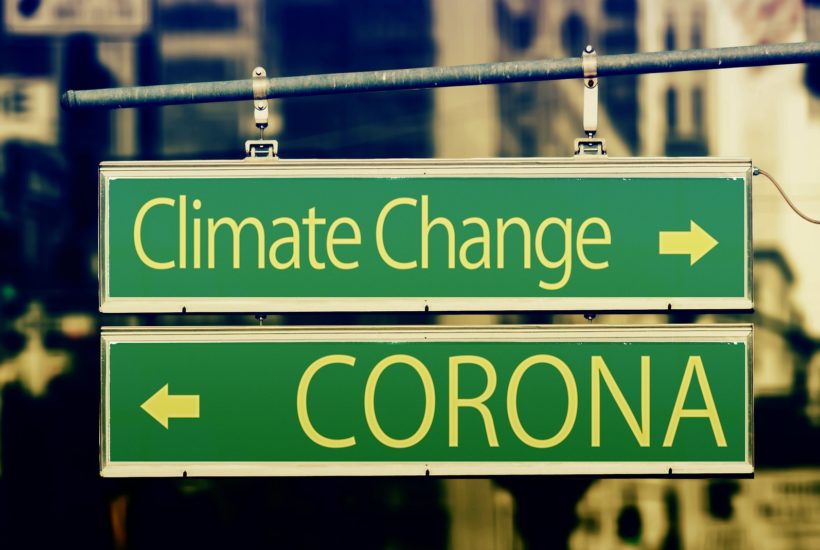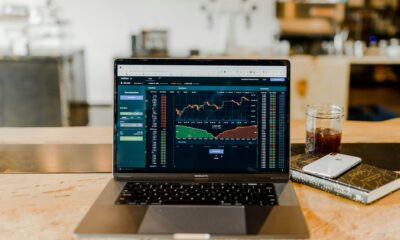Featured
How the pandemic has shifted the attention towards ESG criteria
In the post-COVID-19 economic recovery, the political attention could shift to the problems created by globalization, such as climate change. An analysis conducted among Fidelity International analysts, shows that ESG factors are taking precedence over profit maximization. The economic shock resulting from the pandemic is an additional deflationary force, but inflation could rise again.

In just a few weeks, COVID-19 seems to have changed the cards on the table for the economy, politics, and global markets. The virus has had the strength to accelerate trends already underway, including a focus on environmental sustainability, the digitization of the economy, and a certain propensity for de-globalization.
At the same time, some sectors (the most striking example being air transport) have suffered heavy losses from lock down regulations and it is difficult to predict their place in the post-covid world at the moment.
The financial markets, for their part, experienced an epochal collapse in March, before embarking on a rally in recent months supported by the massive measures taken by central banks. However, now they seem to be navigating on sight, waiting for economic data to give a more accurate picture of the damage inflicted by the pandemic. In this framework of deep uncertainty, it is interesting to find out what will be, according to international asset managers, the forces that will shape the post coronavirus world.
Find out more about the importance of ESG criteria in the post-COVID-19 economic recovery and read the latest financial news with our companion app, Born2Invest.
The need for fiscal policies
“Governments will be increasingly indebted, and central banks will be increasingly called upon to monetize the public debt. The great unknown of fiscal policy is the choice governments will make: they will choose to be big spenders or to opt for austerity,” explained Valentijn van Nieuwenhuijzen, chief investment officer of NN Investment Partners (NN IP).
The alternative of a greater fiscal stimulus to address the risk of unemployment and inequality could subsidize consumers or businesses, finance health, climate, and infrastructure projects, or redistribute wealth to the poorest segments of society: “In this scenario, society could become more balanced in terms of environmental, social and governance (ESG) issues,” noted van Nieuwenhuijzen.
“In recent times, we have witnessed the exit from poverty and the progressive enrichment of much of the global population. However, the new coronavirus has brought with it a great humanitarian effect and stopped this trend. Estimates indicate that in 2020 the world will see more people enter poverty than exit poverty for the first time since 1997,” explained Randeep Somel, associate portfolio manager at M&G Investments.
The globalization is under pressure
Political attention could shift to the problems created by globalization, such as inequality, trade conflicts and climate change: “The challenge in a de-globalized world would be to contain debt, keep business profitability high and provide the high employment that globalization has achieved through the creation of low paid jobs,” added Valentijn van Nieuwenhuijzen.
Economic growth with a green engine
“With global trade stalled, productivity stagnating and investment levels persistently low, the sources of economic growth in the next decade are a big unknown,” warned NN IP’s chief investment officer.
However, the good news is that there is a strong demand for new solutions in many areas, such as health and climate change: “The COVID-19 crisis has shown that future-proof business models are more stable and better prepared for change,” said Van Nieuwenhuijzen.
“Governments have introduced fiscal packages to support the economy in the short term and formulated ‘sustainable’ longer-term packages. This is the case with the EU Green Recovery agreement, a €750 billion package to be delivered immediately, but likely to rise to €1.85 trillion by 2030,” added Somel, who pointed out that “the social and environmental challenges we are facing can be seen as one of the reasons why social impact investments are gradually gaining in importance and awareness. This trend will continue in the years to come.”
According to the June edition of the Fidelity Pulse Survey, an analysis conducted among Fidelity International analysts, ESG factors are taking precedence over profit maximization in the recovery from COVID-19. Only 15% of analysts said their companies would not be willing to sacrifice any profits to pursue a more sustainable agenda.
Fiona O’Neill, director of global research at Fidelity International commented: “This trend will last longer than the COVID-19 outbreak in some areas. A good example of the social consequences of COVID-19 on business is a change in the role of banks, with lenders playing a useful role in distributing government stimulus packages and helping borrowers in times of financial distress,” O’Neill pointed out.
The danger of a return to inflation
The economic shock resulting from the pandemic is an additional deflationary force, but inflation could rise again. According to van Nieuwenhuijzen that is due to the partial imbalance in free trade, reduced competition in goods and labor markets, and disruptions in the exchange rate system. “This is mainly a long-term risk, as the current final demand gap in the global economy will take years to overcome,” concluded van Nieuwenhuijzen.
__
(Featured image by geralt via Pixabay)
DISCLAIMER: This article was written by a third party contributor and does not reflect the opinion of Born2Invest, its management, staff or its associates. Please review our disclaimer for more information.
This article may include forward-looking statements. These forward-looking statements generally are identified by the words “believe,” “project,” “estimate,” “become,” “plan,” “will,” and similar expressions. These forward-looking statements involve known and unknown risks as well as uncertainties, including those discussed in the following cautionary statements and elsewhere in this article and on this site. Although the Company may believe that its expectations are based on reasonable assumptions, the actual results that the Company may achieve may differ materially from any forward-looking statements, which reflect the opinions of the management of the Company only as of the date hereof. Additionally, please make sure to read these important disclosures.
First published in FUNDSPEOPLE, a third-party contributor translated and adapted the article from the original. In case of discrepancy, the original will prevail.
Although we made reasonable efforts to provide accurate translations, some parts may be incorrect. Born2Invest assumes no responsibility for errors, omissions or ambiguities in the translations provided on this website. Any person or entity relying on translated content does so at their own risk. Born2Invest is not responsible for losses caused by such reliance on the accuracy or reliability of translated information. If you wish to report an error or inaccuracy in the translation, we encourage you to contact us.

-

 Business1 week ago
Business1 week agoDow Jones Breaks 50,000 as Bull Market Surges Amid Caution and Volatility
-

 Impact Investing7 days ago
Impact Investing7 days agoEU Backs 90% Emissions Cut by 2040 and Delays ETS2 Rollout
-

 Crowdfunding2 weeks ago
Crowdfunding2 weeks agoNewcleo Raises $85 Million to Advance Fourth-Generation Nuclear Reactors
-

 Markets2 days ago
Markets2 days agoMarkets, Jobs, and Precious Metals Show Volatility Amid Uncertainty

























